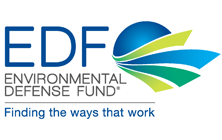
EA: Can you sum up the legacy of Trump’s four years in office for the climate and environment agenda? Is there a sense that the US is on a catch up with Europe and other parts of the world now?
GM: Without a doubt, Trump’s four years set the US back on climate. As The New York Times reported in January, the Trump administration rolled back over 100 environmental rules on issues ranging from drilling to air pollution to emissions standards. The silver lining, though, is that Trump’s negligence supercharged private sector action on climate, as businesses and investors recognized the importance of climate ambition to remaining competitive in a decarbonizing global economy. As of September of 2020, more than 1,500 companies with a combined revenue of $11.4tr had committed to net zero by 2050, a 100% increase from 2019. While the US still has a long road ahead to align with the Paris agreement and catch up to other global leaders, the sense of urgency stemming from the Trump administration’s carelessness has activated corporates and financial institutions, paving the way for more ambitious public-private cooperation on climate.
EA: What do you see as President Biden’s most immediate priorities in addressing the climate crisis, environmental reforms, and leading on a green and socially just recovery post-COVID?
GM: Reducing methane emissions from the oil and gas sector and electrifying transportation present the Biden administration with the most immediate, actionable opportunities to lead a green and just COVID recovery. Methane is 84 times more potent than CO2 over the first 20 years it reaches the atmosphere, setting the pace for warming in the near term. According to a new study from Ilissa Ocko, senior climate scientist at EDF, immediate action to slash methane emissions could slow warming by as much as 30%. With industry players like Pioneer Natural Resources and Occidental Petroleum supporting methane standards, the Environmental Protection Agency under Biden has a unique window to reduce emissions.
Electrifying road transportation, specifically medium- and heavy-duty vehicles, would also contribute to a green, just recovery. Transportation accounts for the largest share of carbon emissions in the US and is one of the biggest sources of air pollutants such as NOx and PM2.5. A 2020 study from the Environmental Protection Agency found that approximately 20,000 Americans die prematurely every year from motor vehicle pollution. Often, communities of color disproportionately shoulder this health burden. Through its infrastructure plan, the Biden administration can address this climate and public health issue with incentives for clean trucking.
EA: What smart climate policies and government incentives are required to best facilitate private sector capital flows into low-carbon projects supporting the energy transition and amplifying public sector stimulus?
In addition to sector-specific climate regulation in energy, power, and transportation, accelerating private, climate-aligned financing depends on smart financial regulation. In the US in particular, rulemaking on mandatory climate risk disclosure from the Securities and Exchange Commission and updated guidance on ESG integration from the Department of Labor have the potential to unlock trillions of dollars for low-carbon projects. Improving corporate climate risk disclosure will help investors price climate risks more accurately, making low-carbon assets cost competitive with carbon-intensive alternatives. Clear, affirmative guidance on ESG integration from the DoL would provide employers more flexibility to add climate-friendly financial products to their 401(k) plans, helping green the nearly $7tr 401(k) market which has thus far lagged behind other components of the financial sector on net zero alignment.
EA: How do you see the role of Wall Street and ESG investment as a driver evolving this year, and what is your analysis of the recent rapid growth in the green/sustainable bonds market globally in the green transition?
GM: This year, progress in the finance sector will depend on more stringent, explicit, and specific climate expectations for carbon intensive companies. In the past, too many US financial institutions have failed to align their actions with their climate rhetoric. With the new Glasgow Financial Alliance for Net Zero and heightened scrutiny directed towards Wall Street, responsible proxy voting and transparent climate benchmarks will prove crucial to distinguishing leaders from laggards.
The rapid rise of green bonds highlights a growing appetite among financiers for environmentally-friendly capital allocation and a recognition among corporates that climate leadership can improve access to capital. Still, although the rise in green bonds signals initial climate progress, banks have significant work ahead to align their lending portfolios with net zero. In the coming years, banks should focus on applying green bond principles to all lending practices, making green the new normal. Until green bond requirements saturate the vanilla bond market, green bonds will remain a more effective branding strategy than emissions reduction catalyst.
EA: How important are nature-based solutions and addressing the biodiversity crisis to the new administration? How does EDF advocate on this front?
GM: The Biden administration recognizes that advancing nature-based solutions is absolutely critical to slowing down both the amount and rate of warming. Biden’s Climate Leaders Summit on April 22 included a groundbreaking announcement for the "LEAF Coalition," an initiative expected to mobilize at least $1bn to purchase high-integrity emissions reductions from tropical forest protection through 2026, helping deliver much needed results-based funding to indigenous communities in the Amazon and other rainforest defenders. This $1bn commitment exceeds the entire amount of voluntary corporate dollars put toward reducing emissions from forests since 2007. EDF played a pivotal role in LEAF’s development and, more broadly, is focused on ensuring the quality and integrity of nature-based solutions through a "jurisdictional" approach. With a jurisdictional approach, countries or large subnational jurisdictions that commit to reducing deforestation below an established baseline receive payments for verified emissions reductions through carbon markets or pay-for-performance systems.
EA: For consultants and business advisors, where do you think they should be building capacity to help support their industry and finance clients as climate and environmental reforms impact during the next year or two?
They should be building capacity in three main areas over the next year: educating corporate boards on climate; improving climate risk disclosure; and aligning corporate performance incentives with climate metrics. Increasingly, major asset managers are demanding that companies appoint board members trained in climate management. Consultants should expect a rise in demand for board education on climate and prepare accordingly. Additionally, shifting climate disclosure requirements will push companies to seek advice from external consultants on climate reporting and regulatory compliance. Companies leading on climate will also begin working to align internal performance and compensation incentives with climate metrics to incentivize firm-wide climate analysis. Proactive consultants and advisors can assist companies in devising these incentives.
----
Gabriel Malek
Investor Influence Coordinator, Environmental Defense Fund

Gabe is Investor Influence Coordinator at the Environmental Defense Fund, working with stakeholders across the financial services industry ― including banks, asset managers, asset owners, and private equity firms ― to achieve net zero greenhouse gas emissions economy-wide by 2050. He focuses specifically on decarbonization in the oil and gas and transportation sectors, the intersection of financial regulation and climate policy, and climate-alignment in the 401(k) market. Gabe was named to the Socially Responsible Investing 30 Under 30 list in 2019 and has contributed to thought leadership on sustainable finance with the United Nations Environmental Programme, the Sustainability Accounting Standards Board, and the Intentional Endowments Network, among others. Gabe graduated Phi Beta Kappa and magna cum laude from Yale University.
Hear more from Gabe Malek at the Environment Analyst Global Summit 2021 - From Crisis to Opportunity: The Decisive Decade on 8 June, where he will be discussing key policy drivers and regulatory reform priorities for a green recovery in North America and globally.
View the event agenda and speaker details here.

